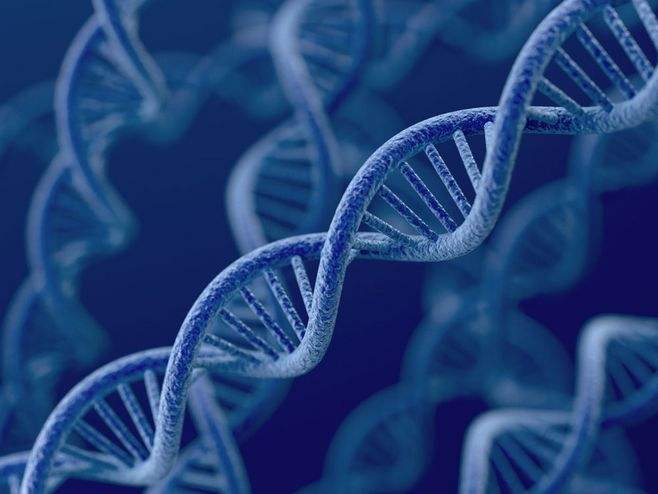By such means does Darwinian natural selection look after us. It also helps to explain why we are all so similar. Evolution simply won't let you become too different — not without becoming a new species anyway.
達爾文的自然選擇理論正是以這樣的方式保護著我們,這也有助于理解為什么我們都如此相似。進化不會使你變得過于獨特,你無論如何不會成為新的物種。
The 0.1 percent difference between your genes and mine is accounted for by our Snips. Now if you compared your DNA with a third person's, there would also be 99.9 percent correspondence, but the Snips would, for the most part, be in different places. Add more people to the comparison and you will get yet more Snips in yet more places. For every one of your 3.2 billion bases, somewhere on the planet there will be a person, or group of persons, with different coding in that position. So not only is it wrong to refer to "the" human genome, but in a sense we don't even have "a" human genome. We have six billion of them. We are all 99.9 percent the same, but equally, in the words of the biochemist David Cox, "you could say all humans share nothing, and that would be correct, too."
你和我的千分之一的基因差異是由我們的Snips決定的。如果將你的DNA與第三個人相比,有99.9%也是一致的,但是你們的Snips在很大程度上會在不同的位置。如果與更多的人相比,你們更多的Snips會在更多的不同的位置。對于你的32億個堿基中的每個堿基,地球上某個地方某個人或某群人,他或他們在那個位置上的密碼會是不同的。因此,不僅“那個”人類基因組這種說法是錯誤的,在某種意義上我們甚至根本就沒有“一個”人類基因組。我們有60億個基因組,盡管我們的99.9%全都是一樣的。但是,同樣可以說,正如戴維·考克斯所指出的,”你可以說所有的人沒有任何共同之處,這種說法也沒錯”。

But we have still to explain why so little of that DNA has any discernible purpose. It starts to get a little unnerving, but it does really seem that the purpose of life is to perpetuate DNA. The 97 percent of our DNA commonly called junk is largely made up of clumps of letters that, in Ridley's words, "exist for the pure and simple reason that they are good at getting themselves duplicated."
但是,我們仍然不得不解釋,為什么DNA中的絕大部分都沒有任何明顯的目的。答案乍一看上去有些令人失望,但是生命的目的似乎確實就是使DNA得以永久存在。我們DNA的97%通常被稱為垃圾(Junk),它們在很大程度上由字母塊組成,用馬特·里德利的話說,它們“存在的理由極其單純和明了,就是因為它們善于復制自己”。












